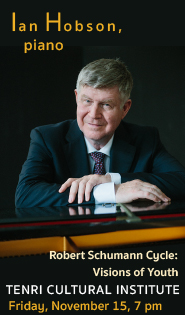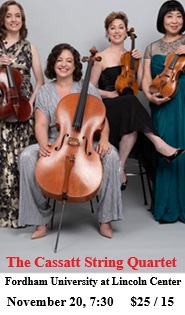Levine leads Met Orchestra in a moving Verdi Requiem

Giuseppe Verdi’s Requiem was performed by James Levine and the Met Orchestra Friday night.
Verdi’s Requiem has a way of always being pertinent. The mass’s emotional intensity, its massive expressions of awe and its moments of intimate reflection, make it a powerful experience for both performer and listener. That performances of the Requiem often come to feel like public outpourings of grief–even for events unforeseen when the performance was scheduled–is only natural.
This week, the Metropolitan Opera and its many sister companies around the world are mourning the death of Dmitri Hvorostovsky, the great Russian baritone. One of the greatest artists of his field for more than two decades, he doubtless would have been in the hearts of many listeners during Friday’s performance of the Requiem at the Met, which was dedicated to him in a program insert. It was certainly fitting that the iconic funeral mass by Verdi, who wrote many of Hvorostovsky’s most celebrated roles, should serve as a memorial tribute.
And a moving tribute it was, for its flaws. James Levine was an obvious choice to lead these concerts from a box office perspective, but his direction from the pit on Friday was frustrating. He mostly managed the performance, rather than giving it real direction, and even that was inconsistent, often losing control of the ensemble. As with many Levine performances these days, Friday’s Requiem was an experience of something close to cognitive dissonance: boundless admiration for the orchestra he built, which maintained note-for-note precision even in the tumult of the “Dies irae,” and serious questions about what he can achieve with it in the twilight of his career.
There was unevenness in the solo quartet, as well–Aleksandrs Antonenko has enjoyed some high-profile engagements at the Met, sporting a claxon-like tenor that rings out in difficult, high-lying roles. While the tenor part of the Requiem has opportunities for Antonenko’s muscular sound to shine, nuance is required, as well. The “Ingemisco” revealed a breathy tone when he tried to rein in his powerful voice and exposed a patchiness of intonation that nagged him throughout. When he attempted the dolcissimo piano as written at the start of the “Hostias,” his E-natural came out cloudy, and even a little wobbly.
The “Hostias” featured the loveliest singing of the performance from veteran bass Ferruccio Furlanetto, an earnest and reverent expression of thanks, simply phrased and tenderly. He was visibly fighting a cough the entire evening yet his voice showed only a slightly rougher grain than usual, if at all. It took some time for his voice to show its full breadth, relying on fierce declamation in the “Mors stupebit” and working up to the more lyrical sections later on. His pleading of “oro supplex it acclinis” in the “Confutatis” was simply and tenderly phrased.
The ladies of the quartet were the outstanding stars of the night–mezzo Ekaterina Semenchuk showed a gorgeous, plush voice throughout her range. There is taut power in her chest, and not a hint of shrillness at her top, letting her command every part of the role. Her account of the “Lux aeterna” was stunning: the voice that for so much of the performance had been a rich, viscous instrument was suddenly more liquid, flowing easily through the vocal line.
The Requiem’s dramatic conclusion falls largely to the soprano; Krassimira Stoyanova was brilliant in the climactic “Libera me,” exploding into the opening bars with driving terror. On Friday she commanded her voice with crystal focus, but showed that she could be supple, too–she moved throughout her range with perfect, lyrical ease, and glowed softly in her quiet voice, floating beautifully up to her high B-flat.
The duets between these two outshone just about anything else: the “Recordare” was sublime, satin folded into velvet, and they sang with hymn-like reverence in the “Agnus Dei,” achieving emotional power through their restraint.
Of course, the chorus in Verdi’s Requiem is at least as important a player as any other, and Donald Palumbo and his singers deserved an even more rapturous ovation than they received. Whether power or warmth was called for, they met the challenge, finding aching tenderness in the a cappella section of the “Agnus Dei,” and summoning up a chill blast of wind in the “Dies irae.”
Verdi’s Requiem will be repeated 7:30 p.m. Monday and Wednesday at the Metropolitan Opera House. metopera.org



Posted Nov 26, 2017 at 10:57 am by Arthur Warren
Dear Eric
To my taste, your review was just perfect.
Agreed with all of your opinions!
Thank you
Arthur Warren
Posted Dec 02, 2017 at 5:23 pm by Sanford Leff
The final performance Saturday afternoon was superb. Jimmy was in charge all the way, Furlanetto sang with rich poignancy, the women soloists were outstanding , and the chorus was breathtaking. Opening night’s performance may have been rough, but today’s was transcendent, spiritual, and musically Superb.
Posted Dec 10, 2017 at 12:58 pm by Ralph Maiano
Hello Eric!
I agree with your review almost 100% but I would be much harder on the clumsy attempt by Antonenko, when a tenor like Beczala would have been soooo much better. It reminds me of when Marcelo Alvarez TRIES to sing Calaf, he just cant do it!!! Ferruccio is now quite advanced and even he did better, However even with all that I was still overwhelmed by that wonderful work. By the way, I agree the broadcast was much better than opening night.